On the Ground with Grocery Stores Ditching Plastic
There are over 300,000 grocery stores in the United States. Less than one percent are plastic-free.
On the Ground with Grocery Stores Ditching Plastic
There are over 300,000 grocery stores in the United States. Less than one percent are plastic-free.
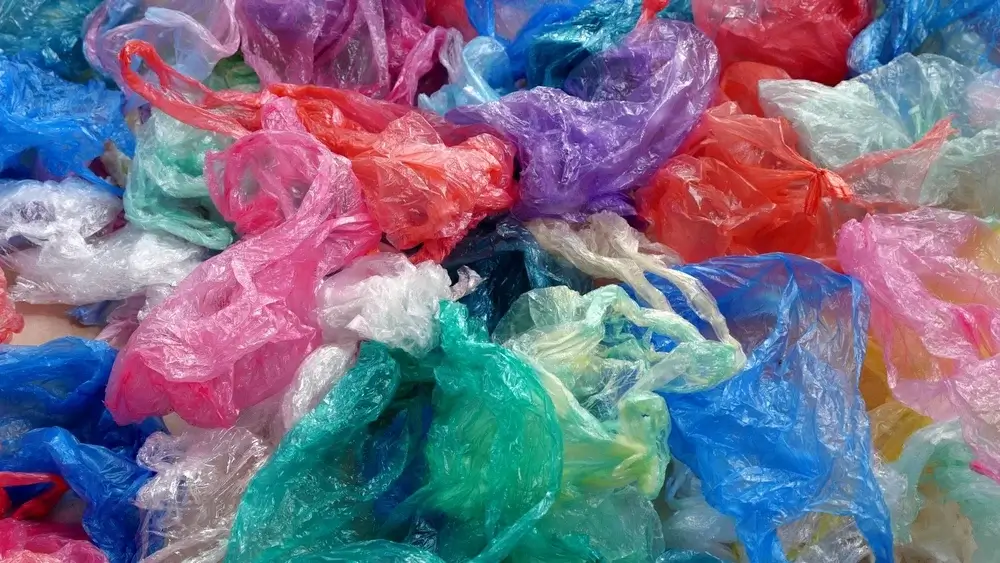
Photography via Shutterstock.
Lea Rainey knew that if all the plastic encasing the food she was buying at the grocery store was her pet peeve, other people must be frustrated by it as well. “I could have continued to be one of those people who complained, wishing that ‘they’–companies–would do something about it, or I could do something about it,” she says. In 2019, she opened Roots Zero Waste Market and Café in Garden City, Idaho. The market is Rainey’s small solution to a problem that has overwhelmed North America.
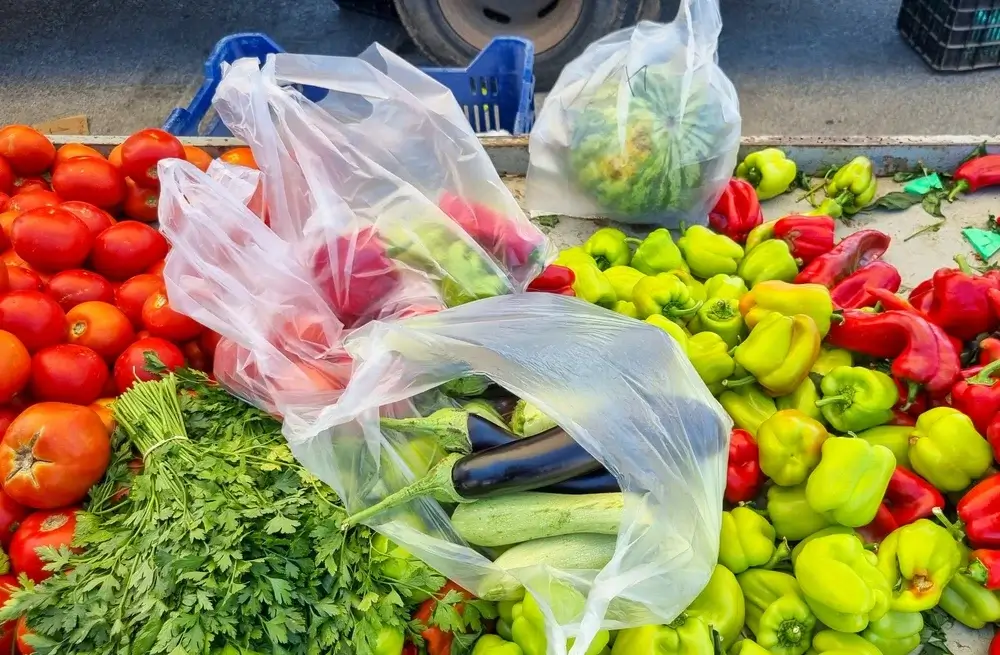
In 2024, Environmental Defence Canada published Left Holding the Bag: A Survey of Plastic Packaging in Canada’s Grocery Stores. They found that over 70 percent of products in the produce and baby food aisle are encased in plastic. It’s not much better in the US. In 2019 Greenpeace USA assessed 20 grocery retailers with a significant national or regional presence. None of the retailers, according to Greenpeace, appeared to have comprehensive plans on how to reduce plastic use.
And while it’s true that consumers increasingly report that using less plastic matters to them, statistics paint a different picture. In 2020, over 242 million Americans used bagged or packaged salads–a figure expected to have risen to 251.47 million in 2024. Salad bags are generally categorized as “plastic film” and they jam recycling machinery. They end up in the landfill where they decompose releasing greenhouse gases into the atmosphere.
READ MORE
Digging In: Food’s Big Plastic Problem.
Alongside the environmental concerns, there are potential health issues. Growing research suggests that chemicals used in the manufacture of plastic contribute to a multitude of health issues. Consumer Reports tested nearly 100 foods ranging from dairy products to canned goods.They found that phthalates, a chemical used to make plastic flexible, were in almost all of them. Studies suggest that regular exposure to phthalates can affect reproductive health and that older adults with phthalates in their bodies were more likely to suffer heart disease.
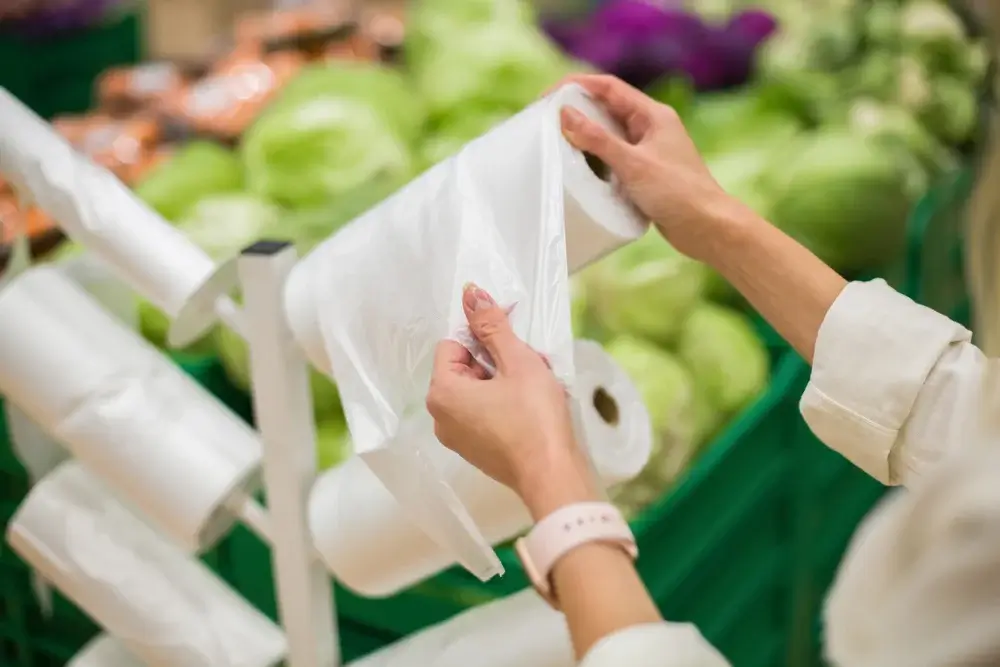
But, there’s hope. In April 2024, the European Parliament voted to approve new rules aimed at reducing plastic packaging. Starting in 2030, bans will be in place for packaging of unprocessed fresh fruits and vegetables. Consumers will be encouraged to bring their containers to restaurants and cafés, which will also aim to offer 10 percent of products in reusable packaging. Since 2022, Canada has banned the use of single use plastic bags at supermarket checkouts. And, in the US more than a hundred municipalities and cities have banned polystyrene ( styrofoam) used in food containers, including Los Angeles and New York. Illinois has gone even further. Legislation came into effect in 2024, permitting restaurants and retailers to fill or refill consumer-owned containers with ready-made or bulk food. Still, plastic packaging persists.
Currently, out of over 300,000 grocery stores in the U.S., which range from expansive supermarkets to small specialty shops, only 1,300 zero-waste stores offer a plastic-free shopping experience.We spoke with a few shops around the country to see how they ditched the plastic.
Maison: pay for food, not packaging
After visiting France and shopping plastic-free, Larasita Vitoux was inspired to open Maison Jar Refillery and Grocery Store in Brooklyn.
“In Europe, there are so many refilleries and stores with bulk aisles,” Vitoux says.
Maison Jar sells bread, vegetables and dried goods all free of plastic covering. According to the store’s year-end impact report for 2023, they are making a dent in plastic use. For example: in 2023 Maison Jar sold 39,075 fluid ounces of kombucha–the equivalent of 2,443 16 oz plastic bottles.
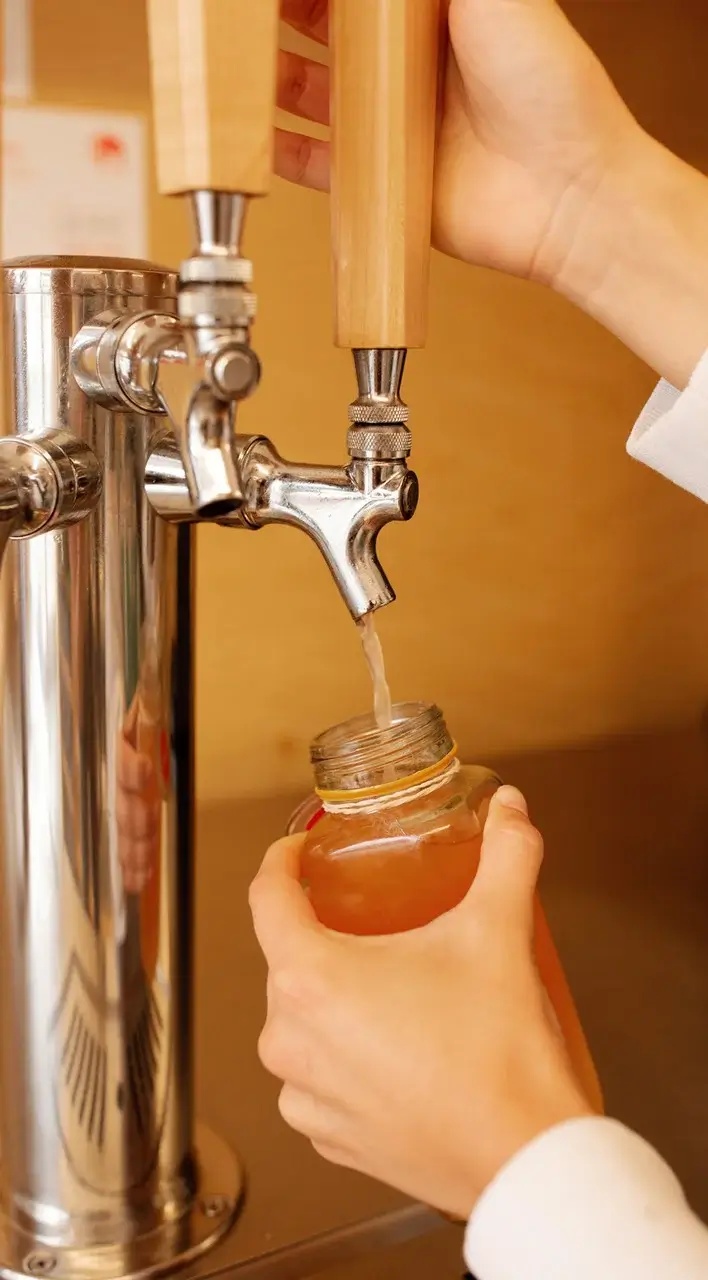
Something Vitoux believes could propel plastic free bulk shopping into the mainstream market is the introduction of Extended Producer Responsibility (EPR) legislation. An EPR shifts the responsibility for managing materials at the end of life away from consumers and onto producers who are required to provide funding and/or services that assist in managing products after the use phase. To accomplish this, as Vitoux points out, there can be an embedded cost associated with the packaged goods that gets passed on to the consumer.
Because bulk buying eliminates packaging, bulk items would not incur this carry over expense.
“It would make bulk much more competitive,” Vitoux says. As of January 2025 legislation to establish EPR’s in New York State, where Maison Jar is, had been introduced.
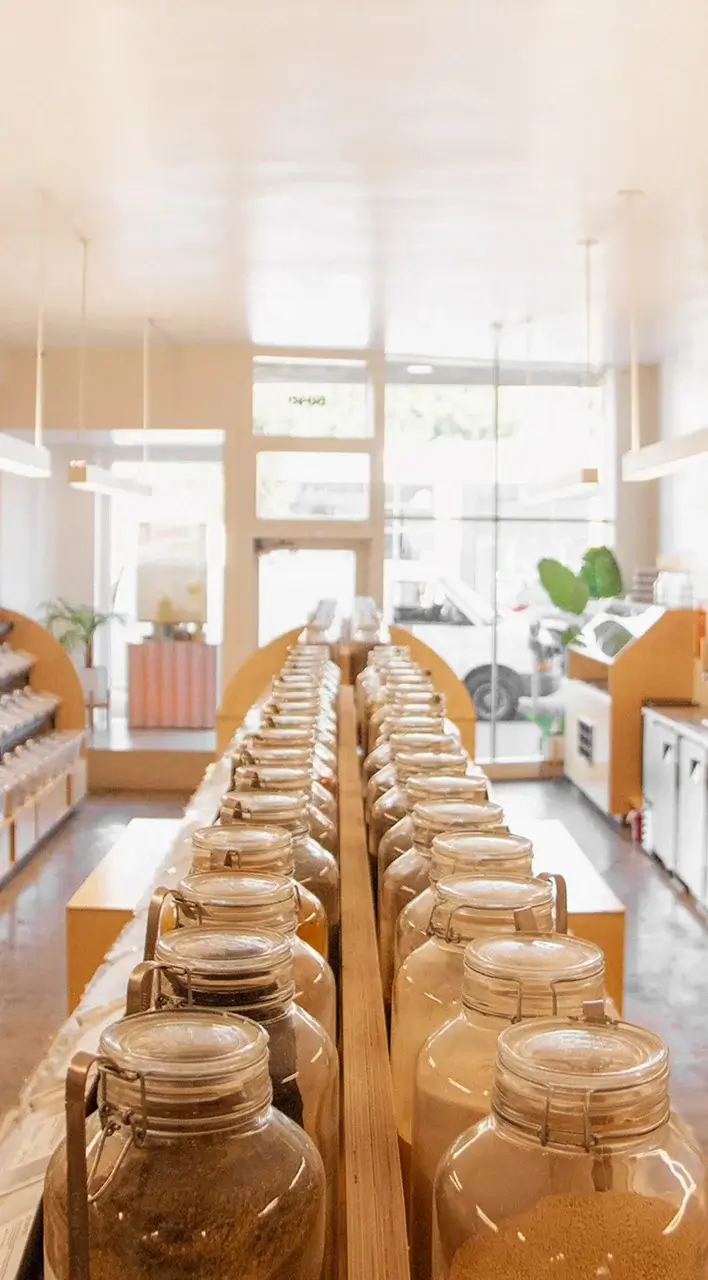
Re_grocery: direct from the farm
After living in San Francisco and enjoying bulk plastic-free shopping at the city’s iconic Rainbow Grocer, Joseph Macrino returned to Los Angeles in 2016. “ There weren’t any options in L.A. like that,” he says. So, he created his own. re_grocery’s first location opened in April 2020.
TAKE ACTION
Learn to reduce your exposure to plastic in food.
From the start, the store was popular; five years later re_grocery has expanded to a chain of three stores. One in Studio City, another in East L.A. and one in Venice. Carrying everything from cooking oils, quinoa, and organic vegetables, they work to keep prices as competitive as conventional grocers.
“A lot of it has to do with the bulk nature of products we are purchasing,” Macrino explains. “For example, we purchase quinoa in 25lb bags. We get it directly from the farm after some processing and re-packing. It’s not going to another co-packer, where it is getting broken down into smaller packages. By avoiding that other middleman – the co-packer, we are able to price bulk packages cheaper.”
Customers at re_grocery weigh their containers when they arrive and receive a laser chip that is attached to the receptacle.When their goods are weighed at the check out the laser tag is scanned and the container weight is subtracted. The customer does not pay any extra for the container.
Roots Zero Waste Market: on demand ordering
The argument for wrapping a cucumber or head of cabbage in plastic is to maintain shelf life and freshness longer. At Roots, Rainey applies a “just-in-time ordering policy.” By ordering more frequently – often three times a week and only what she needs – food remains fresh. Roots sell eggs, milk, meat, and organic produce alongside bulk items such as olive oil, spices and rice. “We evaluate what’s moving on the floor seasonally and adjust to how people’s buying patterns are fluctuating at the time,” she says.
“We are an environmental company disguised as a retailer,” she says.
Roots operates on a closed-loop business model that fits with Rainey’s environment consciousness, who is adamant that recycling does not work.
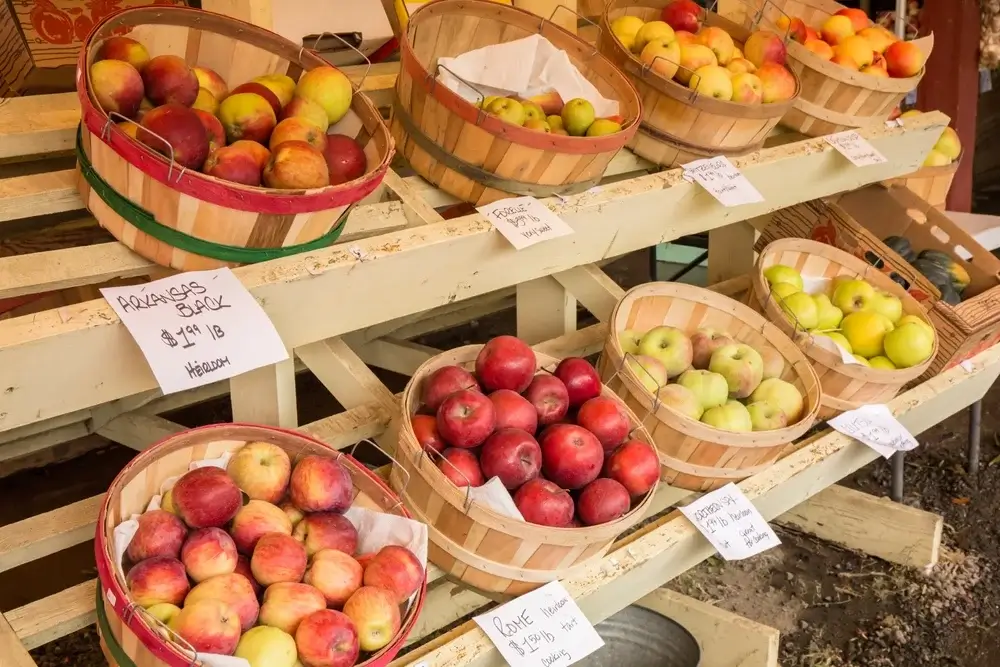
“There is no such thing as recycling,” she says. Not only do rules for what can be recycled vary by state: a plastic strawberry container, for instance, may be repurposed, but cling wrap may not be so lucky. Items such as toothpaste containers, chip bags, or juice boxes are formed with multiple layers of materials making them hard to break down and recycle.
“We never send anything to the landfill,” Rainey says. If, for example, an apple gets bruised in produce, it’s taken to the deli where it is pressed into juice, with the pulp repurposed for muffins and its core composted.
“We are an environmental company disguised as a retailer,” she says.
Follow us
This work is licensed under a Creative Commons Attribution-NoDerivatives 4.0 International License.
Want to republish a Modern Farmer story?
We are happy for Modern Farmer stories to be shared, and encourage you to republish our articles for your audience. When doing so, we ask that you follow these guidelines:
Please credit us and our writers
For the author byline, please use “Author Name, Modern Farmer.” At the top of our stories, if on the web, please include this text and link: “This story was originally published by Modern Farmer.”
Please make sure to include a link back to either our home page or the article URL.
At the bottom of the story, please include the following text:
“Modern Farmer is a nonprofit initiative dedicated to raising awareness and catalyzing action at the intersection of food, agriculture, and society. Read more at <link>Modern Farmer</link>.”
Use our widget
We’d like to be able to track our stories, so we ask that if you republish our content, you do so using our widget (located on the left hand side of the article). The HTML code has a built-in tracker that tells us the data and domain where the story was published, as well as view counts.
Check the image requirements
It’s your responsibility to confirm you're licensed to republish images in our articles. Some images, such as those from commercial providers, don't allow their images to be republished without permission or payment. Copyright terms are generally listed in the image caption and attribution. You are welcome to omit our images or substitute with your own. Charts and interactive graphics follow the same rules.
Don’t change too much. Or, ask us first.
Articles must be republished in their entirety. It’s okay to change references to time (“today” to “yesterday”) or location (“Iowa City, IA” to “here”). But please keep everything else the same.
If you feel strongly that a more material edit needs to be made, get in touch with us at [email protected]. We’re happy to discuss it with the original author, but we must have prior approval for changes before publication.
Special cases
Extracts. You may run the first few lines or paragraphs of the article and then say: “Read the full article at Modern Farmer” with a link back to the original article.
Quotes. You may quote authors provided you include a link back to the article URL.
Translations. These require writer approval. To inquire about translation of a Modern Farmer article, contact us at [email protected]
Signed consent / copyright release forms. These are not required, provided you are following these guidelines.
Print. Articles can be republished in print under these same rules, with the exception that you do not need to include the links.
Tag us
When sharing the story on social media, please tag us using the following: - Twitter (@ModFarm) - Facebook (@ModernFarmerMedia) - Instagram (@modfarm)
Use our content respectfully
Modern Farmer is a nonprofit and as such we share our content for free and in good faith in order to reach new audiences. Respectfully,
No selling ads against our stories. It’s okay to put our stories on pages with ads.
Don’t republish our material wholesale, or automatically; you need to select stories to be republished individually.
You have no rights to sell, license, syndicate, or otherwise represent yourself as the authorized owner of our material to any third parties. This means that you cannot actively publish or submit our work for syndication to third party platforms or apps like Apple News or Google News. We understand that publishers cannot fully control when certain third parties automatically summarize or crawl content from publishers’ own sites.
Keep in touch
We want to hear from you if you love Modern Farmer content, have a collaboration idea, or anything else to share. As a nonprofit outlet, we work in service of our community and are always open to comments, feedback, and ideas. Contact us at [email protected].by Jennifer Cole, Modern Farmer
February 11, 2025
Modern Farmer Weekly
Solutions Hub
Innovations, ideas and inspiration. Actionable solutions for a resilient food system.
ExploreShare With Us
We want to hear from Modern Farmer readers who have thoughtful commentary, actionable solutions, or helpful ideas to share.
SubmitNecessary cookies are absolutely essential for the website to function properly. This category only includes cookies that ensures basic functionalities and security features of the website. These cookies do not store any personal information.
Any cookies that may not be particularly necessary for the website to function and are used specifically to collect user personal data via analytics, ads, other embedded contents are termed as non-necessary cookies.
Good to see you.